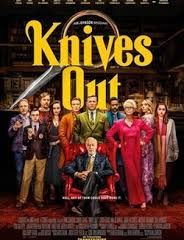Exploring The Day of the Jackal: Significance and Impact

Introduction
The Day of the Jackal, the acclaimed novel by Frederick Forsyth, published in 1971, has continued to capture the imagination of audiences for over five decades. Its gripping portrayal of a fictional assassination plot against French President Charles de Gaulle offers a vivid glimpse into the intersections of politics, espionage, and morality. The book’s impact extends beyond literature, influencing film adaptations, public discourse on political violence, and popular culture, marking its relevance in contemporary discussions surrounding terrorism and statecraft.
Plot Overview and Themes
The narrative centres around an unnamed professional assassin, referred to as the Jackal, who is hired by the French far-right paramilitary Organisation de l’Armée Secrète (OAS) to kill de Gaulle due to his decision to grant independence to Algeria. Forsyth’s meticulous attention to detail, intricate plotting, and multifaceted characters provide a tense, suspenseful reading experience. The themes of identity, loyalty, and moral ambiguity resonate throughout the book, prompting readers to explore the motivations behind the Jackal’s actions and the ethical dilemmas of political violence.
Cultural Adaptations and Legacy
The Day of the Jackal was adapted into a successful film in 1973, directed by Fred Zinnemann, which garnered critical acclaim and further cemented the story’s place in popular culture. The film’s portrayal of the Jackal, played by Edward Fox, highlighted the chilling proficiency and cold calculation of the assassin, earning it recognition as one of the great thrillers of its era. The impact of both the novel and the film has been felt in various genres, inspiring numerous works in spy fiction and political thrillers. The Jackal archetype has become a template for anti-heroes in modern storytelling.
Modern Context and Relevance
As discussions around political extremism and terrorism have surged in contemporary society, The Day of the Jackal remains strikingly relevant. Its portrayal of a lone assassin for hire echoes the real-world instances of politically motivated violence and the complexities that surround national security. The meticulous planning and execution presented in Forsyth’s work provoke thought on the lengths individuals may resort to in pursuit of ideological goals. Furthermore, it continues to be a point of reference in debates regarding state-sponsored violence versus the acts of solitary operatives.
Conclusion
In essence, The Day of the Jackal is not only a thrilling narrative but also a reflective piece that challenges readers to consider the implications of political violence. Its cultural significance endures, providing insight into the human condition and the darker aspects of political ambition. As new generations discover this masterful work, its lessons on the fragility of peace and the pervasive nature of conflict remain ever relevant, ensuring its place in both literary and cinematic history.









